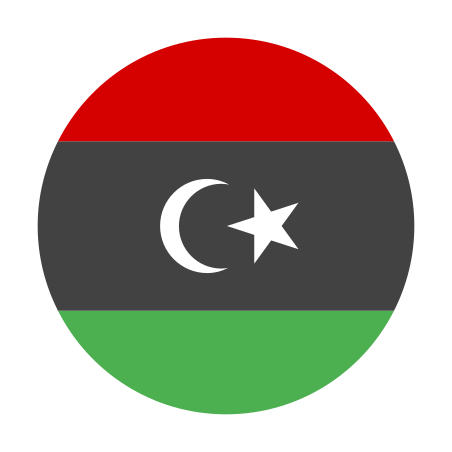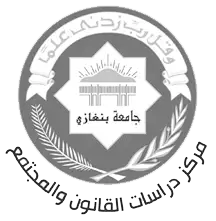Justice seeking and access to justice in Libya: Former owners of land dispossessed via Law 123/1970 in al Marj
During the Gaddafi-regime, several laws expropriated and redistributed people's property on a massive scale. Since Gaddafi's fall, former owners and their offspring have been trying to reclaim their land. In Al-Marj, some of these disputes escalated violently and pitted entire families against one another.
Libya’s recent history has seen a number of radical reforms of land tenure, which have caused legal uncertainty and disputes between those who benefitted from such reforms and those who lost out. This case study focuses on three land disputes resulting from the application of Law 123 (1970) regarding reclaimed agricultural land owned by the state. These disputes take place in Al Marj and its suburbs, specifically Al-Gawhari, Bouhamir, and Bouqrin. Most people here belong to the Al-Arafah and Al-Obeid tribes, and this includes those who benefited from Law 123 and those who were negatively affected by it. The three cases were selected because they were revealing of the multiplicity of stages that justice seekers go through, and the diverse means they use.
Both land ownership and land disputes in Libya, have often been passed down from father to son for generations. So the justice seekers interviewed for this research, often began to tell their fathers’ stories. Here we will consider the case of Al-Gohary. His father was nineteen years old when Law 123/1970 was applied to land which he had inherited from his father. When the paving machines came to work on the land, he tried to obstruct them. He was arrested, brough to Al Marj police station, and only released after he signed a pledge not to intercept the machines again.
Al-Gohary also inherited his land dispute from his father. He resumed his father’s justice journey after his father died. Al-Gohary tirelessly submitted official requests to the competent popular committees and official authorities, and used several customary committees and councils of elders. Ultimately, his efforts culminated in the issuance of the decision of the director of the Agricultural Middle Project in 1998 to establish 731 farms, of which his share was farm number 79/b. However, this decision was not implemented. His newly created farm was isolated from the public road. The beneficiaries of the surrounding farms refused to allow Al-Gohary to cross their land to access his farm. Further, the Agricultural Appeals Committee annulled the decision of the director of the Agricultural Middle Project. When the case was brought to the judiciary, the Green Mountain Court ruled in favour of the annulment of the decision, a ruling that the Supreme Court later upheld. In sum, Al-Gohary had exerted great effort, but was left disappointed.
After the February 2011 revolution, a new phase began in these land disputes. The original landowners returned to demand the restitution of their land. The Ministry of Agriculture authorized wise men councils to resolve this matter and the disputes between original owners and the beneficiaries. These councils began to form customary committees, which achieved customary agreements between the parties in about 80 percent of the farms in this study area, according to the chairman of the board of directors of of the former owners association (the Arduna, our land, Land Organization). Al Gohary could, through this agreement, fully recover his land in 2013.
But the armed conflict which broke out in 2014, and the political and institutional divisions since, have negatively affected the interests of the original owners. When Operation Dignity-forces became dominant in the East, some beneficiaries of Law 123 tried to renege on the agreements which they had reached in 2012-3 with the original owners. Some denied ever having made such deals, and others went to court to try and nullify those agreements – claiming that they had signed under duress. Al-Gohary found himself in this position. The beneficiary on his father’s land repudiated the agreement, and filed a lawsuit against him at the court of Al-Marj. This Court issued a ruling ordering the eviction of Al-Gohary, but he appealed this ruling before the Court of Appeal in Al-Bayda. While the appeal was in his favour, and the eviction ruling was struck down, his opponent tried to prevent him from entering the farm by force. This led to a fight that escalated into murdering Al-Gohary’s nephew and disabling his son.
To calm things down, the perpetrators were forced to leave Al Marj. Sheikhs, sages, and social committees began their reconciliation efforts between the families. Out of these processes a resolution emerged. The perpetrators’ family were ordered to pay the blood money for the deceased – 500,000 Libyan dinars – to permanently move the perpetrator away, and to accept Al Gohary ownership of the land. In return, Al-Gohary had to allow the perpetrator’s family to rent part of the land for ten years to meet the full value of the blood money.
In sum, the application of Law 123/1970 brought about disputes between former owners and beneficiaries. Those disputes resurfaced around the February 2011 revolution, when sons of former owners were hopeful that they could get their family land back. In the revolutionary years 2011-3, former owners in Al-Marj did indeed often manage to get their land back through customary agreements. But after the 2014 division, some beneficiaries reneged on these agreements – causing a new series of disputes. The case of Al Gohary illustrates how such land disputes can be inherited over generations, and escalate so violently that entire families have to be reconciled to avoid a spiral of revenge.
This summary was published in Suliman Ibrahim, Bruno Braak and Jan Michiel Otto (2022) 'The Long and Winding Road: Justice seeking and access to justice in Libya', Leiden/Benghazi: Van Vollenhoven Institute/Benghazi Centre for Law and Society Studies.




